Iran Witnessed Unprecedented Inflation In Past Nine Months: Statistics
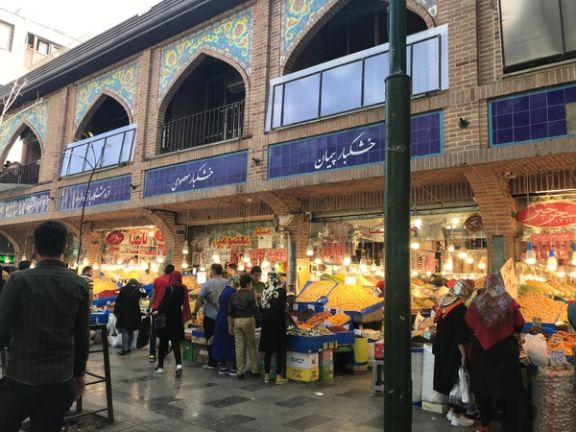
Official figures show there was a sharp increase in food prices in Iran in the past nine months and most items witnessed a more-than 50 price inflation.

Official figures show there was a sharp increase in food prices in Iran in the past nine months and most items witnessed a more-than 50 price inflation.
The Islamic Republic has been struggling with high inflation since 2019, but the raging inflation in the past Iranian year which ends on March 20, was seriously different from previous years.
Last May the government eliminated an annual food import subsidy of at least $10 billion, that immediately led to steep price increases. This was followed by a fall in the value of the national currency, making imports more expensive for the population.
According to Dideban website, the Raisi administration's refusal to provide cheap dollars for food imports had a serious impact, while the country was already witnessing an annual inflation rate above 40%.
However, the authorities emphasized that part of the galloping inflation was due to the subsidy that was a strain on government subsidies.
The government called its decision to scrap the food subsidy “economic surgery,” but it had no other plans to control prices.
Immediately following the announcement food prices jumped, with some items doubling or tripling in a matter of hours. Pasta is 137 percent more expensive than 12 months ago, while meat prices went up by 76 percent and milk by 80 percent.
Food prices continue to climb as the national currency declined by 50 percent in the past six months. According to the report of Statistical Center of Iran (SCI), in some months, the food and beverages inflation hit 87%.
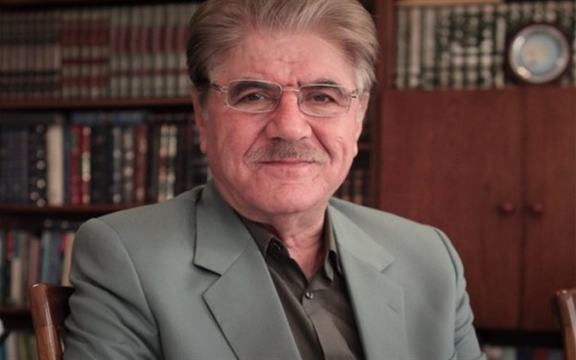
The lawyer representing Mahsa Amini's family, the woman whose death led to mass unrest in Iran, was arraigned by a revolutionary court for "propaganda against the state".
Mahsa Amini was the 22-year-old Iranian woman whose death in Iran's 'morality police' custody last September sparked mass protests last year.
Saleh Nikbakht was summoned to the second branch of the Revolutionary Prosecutor's Office located in Evin prison in Tehran after he conducted interviews with journalists abroad.
According to Kurdistan Human Rights Network (KHRN), Nikbakht, who has represented several dissidents before, was later temporarily released on bail until the next court hearing.
An informed source told KHRN that the accusations brought against Nikbakht is giving interviews about the case of his former and current clients including Loqman Moradi and Zanyar Moradi, and Mahsa Amini.
Nikbakht was summoned exactly six months after Mahsa Amini was killed after being arrested in the street for her attire.
The young woman from Saqqez came to Tehran with her family to visit her relatives, but she was arrested by the morality police on September 13 for “improper hijab”.
After receiving serious head injuries during the first two hours of her detention she was taken to a hospital in Tehran, but on September 16, it was announced that the doctors' efforts to save her had failed.
Mahsa Amini's death triggered widespread protests against the Islamic Republic, which posed the most serious challenge to clerical rule in 43 years.

US State Department refused Monday to comment on the possible release of Iran’s frozen funds in exchange for three Americans held by Iran.
The State Department’s outgoing spokesperson Ned Price however, signaled that efforts are underway for their release. He also sounded positive about a deal last week between Iran and Saudi Arabia to restore relations, brokered by China.
There have long been signs that a US agreement to free $7 billion frozen by South Korean banks would be the price to pay for the release of three dual-nationals considered in effect hostages held by Iran. But after Iran’s deadly crackdown on popular protests and its supply of weapons to Russia, the proposition has become politically costly for the Biden administration.
At the same time, Price once again reiterated that restoring the 2015 nuclear deal (JCPOA) with Iran “is not on the agenda.” He said the Biden administration thought it was “on the precipice of it, only for the Iranians to once again prove that their word was unreliable and to pull back what they had agreed to.”
Talks that began in April 2021 reached a deadlock in early September 2022 when Washington blamed Tehran for presenting “extraneous demands.”
“So that’s not on the agenda. What is always going to be on our agenda as a first resort is diplomacy. We continue to believe that diplomacy is the only permanent, durable, verifiable means by which to address Iran’s nuclear program. We’re not giving up our ambitions and our hope on that, even as we’re preparing for all potential contingencies,” Price said.
It is not clear if JCPOA talks are not on the agenda then what is US diplomacy pursuing? In the past months, both Washington and the European powers involved in talks with Tehran have raised the issue of Iranian weapons supplies to Russia and its gross violations of human rights.
It seems that the West is pursuing either a more comprehensive deal beyond the nuclear issue or perhaps piecemeal agreements on specific issues.
An Iranian analyst in Tehran told ILNA news website Tuesday that the US might be pursuing a limited and temporary agreement to address some dangerous aspects of Iran’s nuclear program. Khosrow Shahin said that Washington might also be aiming for partial agreements on various issues, such as the release of prisoners to reduce the final cost of a full nuclear deal.
Some reprieve from oil sanctions could be one of the incentives for a cap on Iran’s uranium enrichment, similar to the 1990s Iraqi ‘oil for food’ UN program, although Iran needs hard currencies to deal with its worsening economic situation. In February NBC News reported that if Iran’s frozen funds are released in exchange for prisoners, limitations on how to spend the money might apply.
Regarding the Chinese brokered agreement between Riyadh and Tehran, Price said the United States supports “dialogue, we support direct diplomacy, we support anything that would serve to de-escalate tensions in the region and potentially help to prevent conflict.”
Price also tried to dismiss suggestions that China can supplant the US role in the region, emphasizing that the Biden administration has accomplished a lot in enhancing cooperation between regional countries.
“So, I think in any way you look at it, America is deeply engaged with the Middle East. We have, I think, demonstrated results in those efforts to leave a region that is more stable, is more integrated, is more prosperous. We have a long way to go…,” Price, who will soon be leaving as spokesman said.
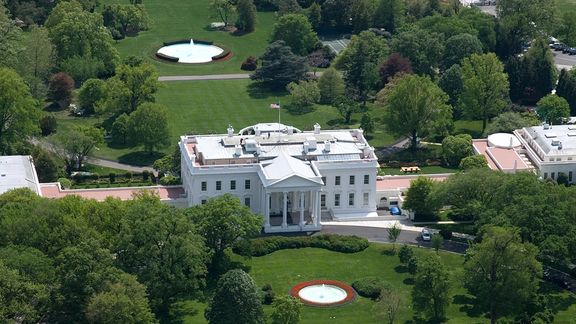
The White House said Monday there was no deal on a prisoner swap with Iran at this time, despite repeated claims by Tehran that an agreement has been reached.
But the White House also said that the United States is continuing to engage with Iran over how to get home Americans unjustly detained there.
"There's no deal. And the last thing that we want to do is give false hope to families that have been waiting for a long time for their loved ones to come home," White House national security adviser Jake Sullivan told reporters.
The Iranian foreign ministry once again said earlier Monday that a "written agreement has been signed by the official representative of the United States” though it did not specify who.
Three US dual nationals and possibly two permanent residents are held by Iran in what human rights organizations call hostage diplomacy by the Islamic Republic.
Tehran, which lost the chance to conclude a nuclear deal with the US and its European allies last September, has been repeatedly claiming that a prisoner release is imminent. It is believed that in case of an agreement over the hostages, the US would agree to the release at least $7 billion in Iran’s frozen funds held in South Korea.
It would be a politically difficult decision by the Biden administration to hand over money to the Iranian regime at a time when Tehran is supplying weapons to Russia and violently suppressing its own people.
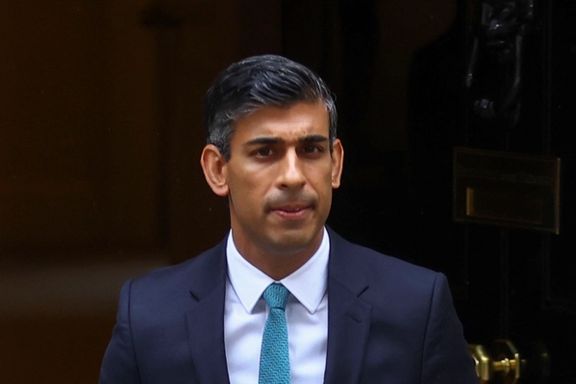
As Britain announced its new blueprint for security and international policy on Monday, Iran’s support for Russia was of grave concern.
The UK declared that the UK's security hinged on the outcome of the Ukraine war and expressed concern at support for Russia being potentially offered by China and Iran.
"China’s deepening partnership with Russia and Russia’s growing cooperation with Iran in the wake of the invasion of Ukraine are two developments of particular concern," Britain's Integrated Review (IR) said.
It has been revealed that Iran is providing Russia with drones, ammunition and missiles, in its ongoing war in Ukraine which began one year ago. In its wake, numerous crises have followed including a global food and energy supply shortage.
The decision to still not describe China as a bigger threat was likely to disappoint many in Prime Minister Rishi Sunak's governing Conservative Party, who also believe his vow to spend an extra 5 billion pounds ($6 billion) on defence is insufficient to support Ukraine without leaving Britain vulnerable.
It will also be disappointing for many that Iran did not take greater precedence in the reports, not least, given the recent evidence of the Islamic Regime being found to have tried to carry out terror acts on UK soil, including plots to kidnap Iran International journalists.
With Sunak under pressure to do more to help the defence ministry combat inflation and replace weapons sent to Ukraine, two billion pounds will go towards replenishing and increasing conventional stockpiles and investing in munitions infrastructure.
In the refresh of Britain's blueprint for security and international policy, the government warned of China’s deepening partnership with Russia, and Moscow’s growing cooperation with Iran following the invasion of Ukraine.
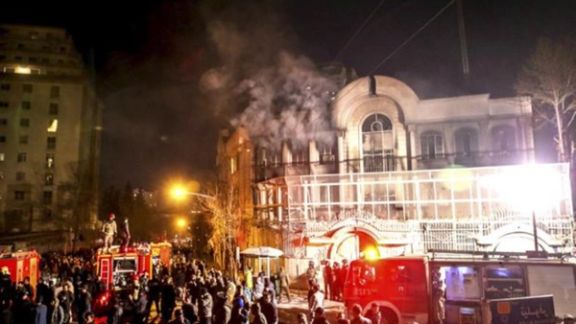
Tehran's deal to resume relations with Saudis has stirred controversy in Iranian political circles as reform politicians and media expose "hypocrisy" of hardliners.
Hossein Shariatmadari, the hardliner editor of Kayhan, who has been harshly criticized for changing his positions on the issue of relations between Tehran and Riyadh, has accused reformists of not understanding the agreement.
Shariatmadari who had shunned ties with Riyadh in 2016 as "a stigma for the Islamic Iran," changed his position to praising the recent agreement as "a hard blow to the United States and Israel." Reformist media have accused Shariatmadari of "defying his own principles."
Shariatmadari said he was happy about the agreement because unlike the previous government of Iran, he believes that regional disputes should be solved by regional states without America's intervention. However, he ignored China's role in brokering the new deal.
Meanwhile, Shariatmadari, who always likes to pretend he has exclusive access to behind-the-scenes developments, wrote elsewhere in Kayhan that the state television and other media outlets have to turn a blind eye on certain developments to serve the government's interests and to prevent foreigners from taking advantage of certain news.

In other reports on Iran, the media have reminded officials, such as President Ebrahim Raisi, of their changing views about what they had said against Saudi Arabia. Social media users posted the screenshot of quotes from Raisi in a January 4, 2016 report one day after Iranian government-led vigilante groups attacked Saudi diplomatic buildings in Iran and set fire to them, that "Iran does not need relations with Saudi Arabia." Raisi, who was then Iran's Public Prosecutor, accused Saudi Arabia of harboring and "feeding" Salafists, and characterized it as "a cancerous tumor in the region."
While other media appear to be cautiously upbeat about the agreement with Saudi Arabia, reports say that the state television continues beating on the drums of creating tensions between Tehran and Riyadh. Abdollah Ramezanzadeh, the former governor-general of Iran's Kordestan Province and an aide to former reformist President Mohammad Khatami wrote in a March 11 tweet: "Infiltrators at the state television have started programs on the national TV to prevent the Iran-Saudi agreement to come to fruition."
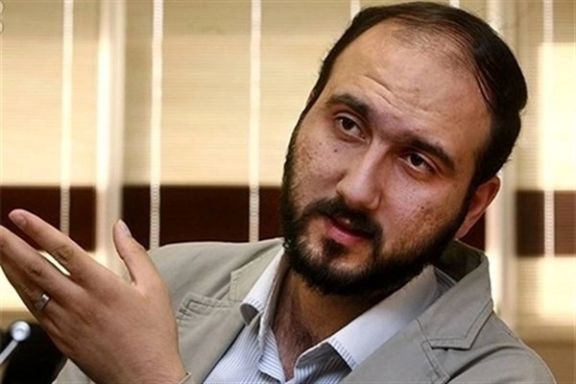
This comes while, Ali Foroughi, a vigilante group leader who was involved in the attacks on Saudi and British embassies in Iran and is now the head of the state television's Channel 3, has been accused on social media of politically benefitting from the disruption in the Tehran-Riyadh ties.
Some other social media users are adamant that the agreement is not about Iran, but it is rather about a guarantee that China's huge investments and trade interests in Saudi Arabia and elsewhere in the region remain safe from Iran's adventurism.
Other reports from Iran speculate about why Security Chief Shamkhani signed the deal in Beijing rather than foreign minister Hossein Amir-Abdollahian who apparently was visiting quake-stricken areas in Syria as Shamkhani was negotiating in China. According to Rouydad24 website, it turns out that the decision to sign the agreement in China had nothing to do with the Foreign Ministry and orders for Shamkhani came from a higher authority, presumably Supreme Leader Ali Khamenei, albeit without naming him.
Khamenei traditionally never makes any public commitment about anything to make sure that he can evade responsibility if things do not work out well.
In the meantime, news came to indicate that Amir-Abdollahian has not been idle and that he was in fact negotiating the terms of releasing US hostages, aka known as US citizens wrongly detained in Iran. However, shortly after the Iranian Foreign Minister's claim, Washington denied his statement about an agreement between Iran and the United States on a prisoner swap.